Golden Orb Weaver PreyBee Butterfly Dragonfly Fly Gecko Lizard Tail Shield Bug
Australian Golden Orb WeaverFemale Male Dimorphic Males Juvenile to Mature Female Moult Prey Web of Sex Egg Sac Web
One morning, I saw this strange appendage in the Golden Orb Weaver’s web… taking a closer look, I was not sure what I was looking at… the reddish end, looked fleshy… and what looked like a break in a joint…
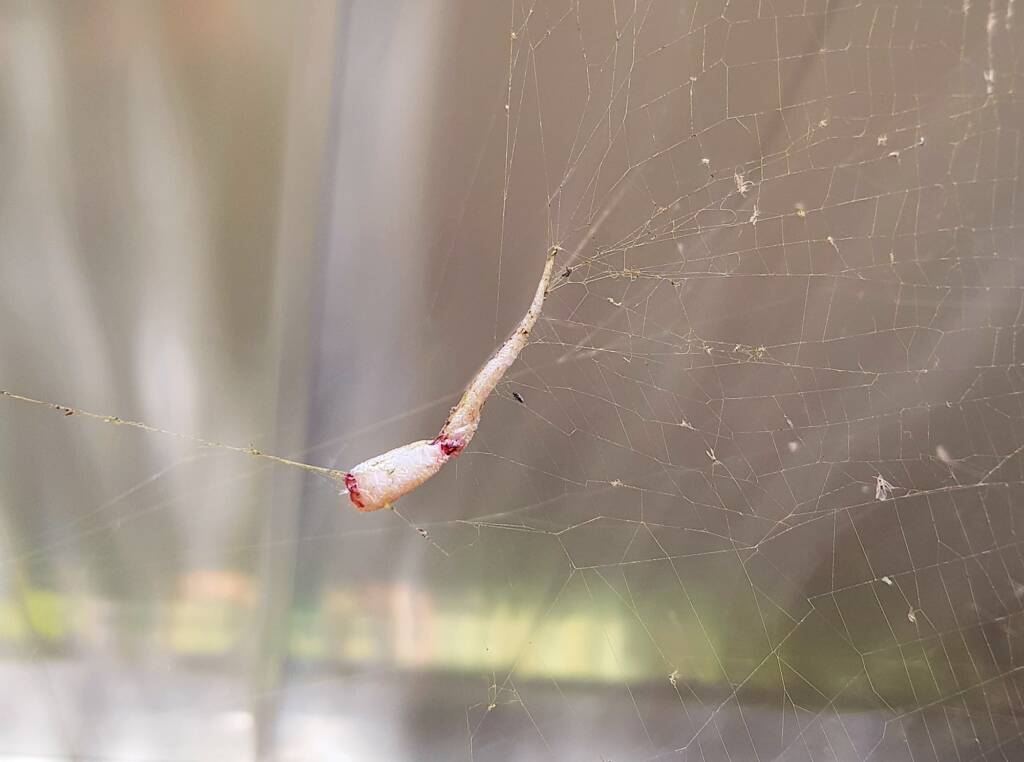
Although on closer look at the “joint break”, it may just have been munched on. I posted it to the Entomology Australia “Invertebratology”, Facebook group for help with the ID, and was informed that it most likely was the tail of some sort of lizard, a gecko maybe, but most probably not a native gecko, as they have thicker tails.1
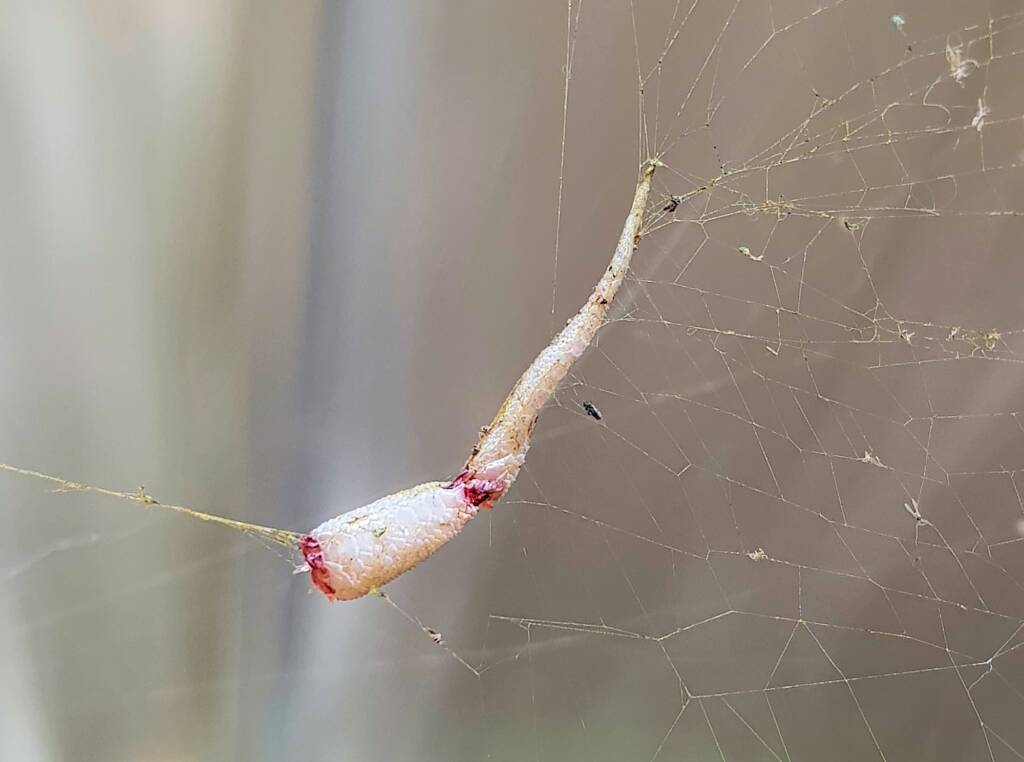
A LIZARD SEVERS its tail as a self-defence mechanism in order to distract its predator – this is known as autotomy (literally from the Greek ‘self’ and ‘sever’) or self-amputation. Lizards are born with a line of weakness in their tail, technically called a fracture plane.
By Dr Mark Hutchinson, senior researcher, South Australian Museum; Source: Australian Geographic2
I did know that lizards dropped their tail as a defence mechanism, so I am guessing that the lizard got away. Following is the sizeable female Golden Orb Weaver Spider (Trichonephila edulis), who was sitting in the web about 20 cm away from the lizard tail. Her body length (not including her legs) is approximately 3 cm in length.
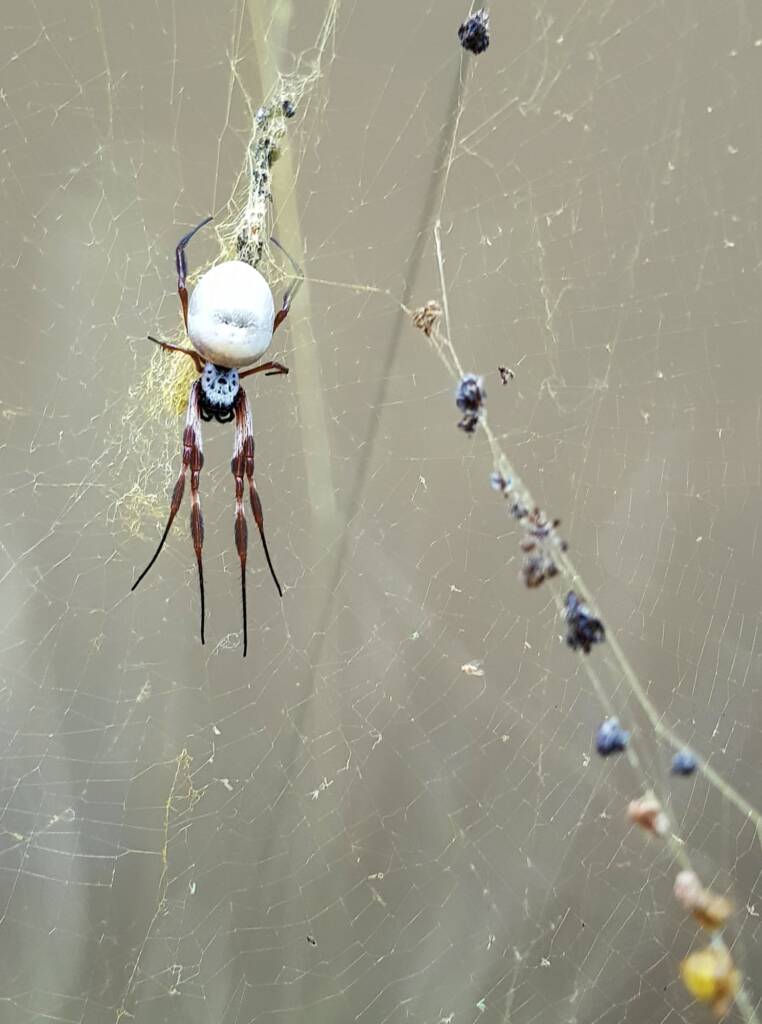
In the following image, the Golden Orb Weaver Spider had moved the tasty bit of tail up to into her food pantry line that hangs above her.
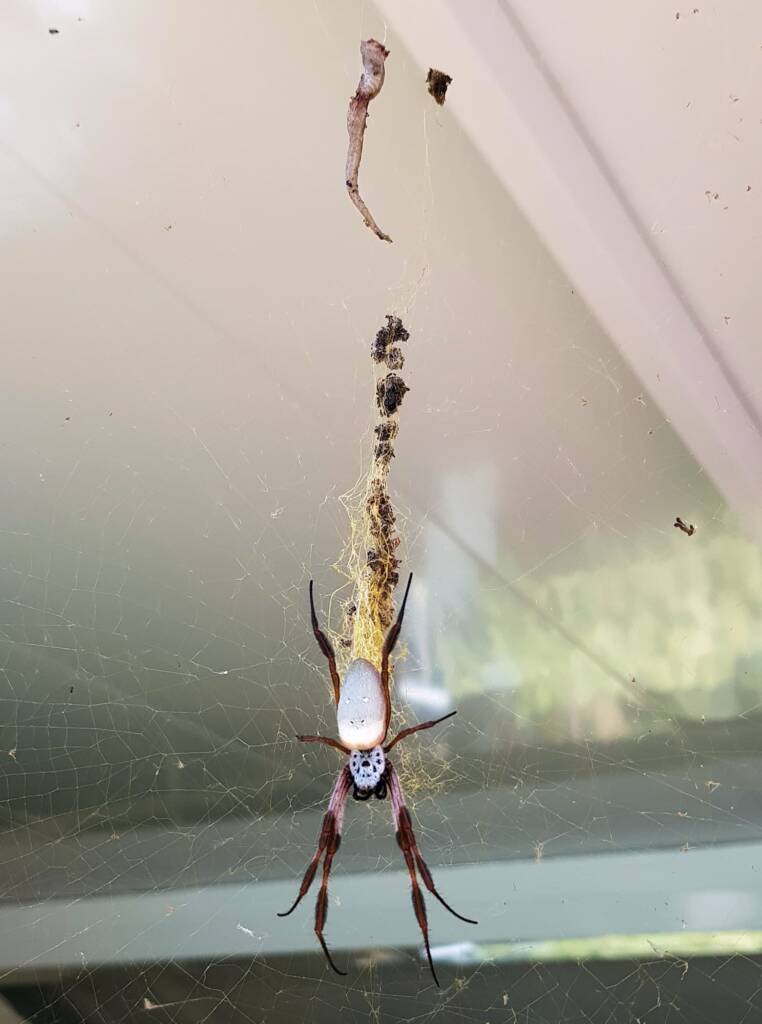
I came back just over an hour later and the tail is gone. I did look around the ground, but did not see it (so assuming mostly likely the tail had been consumed by the Golden Orb Weaver Spider).
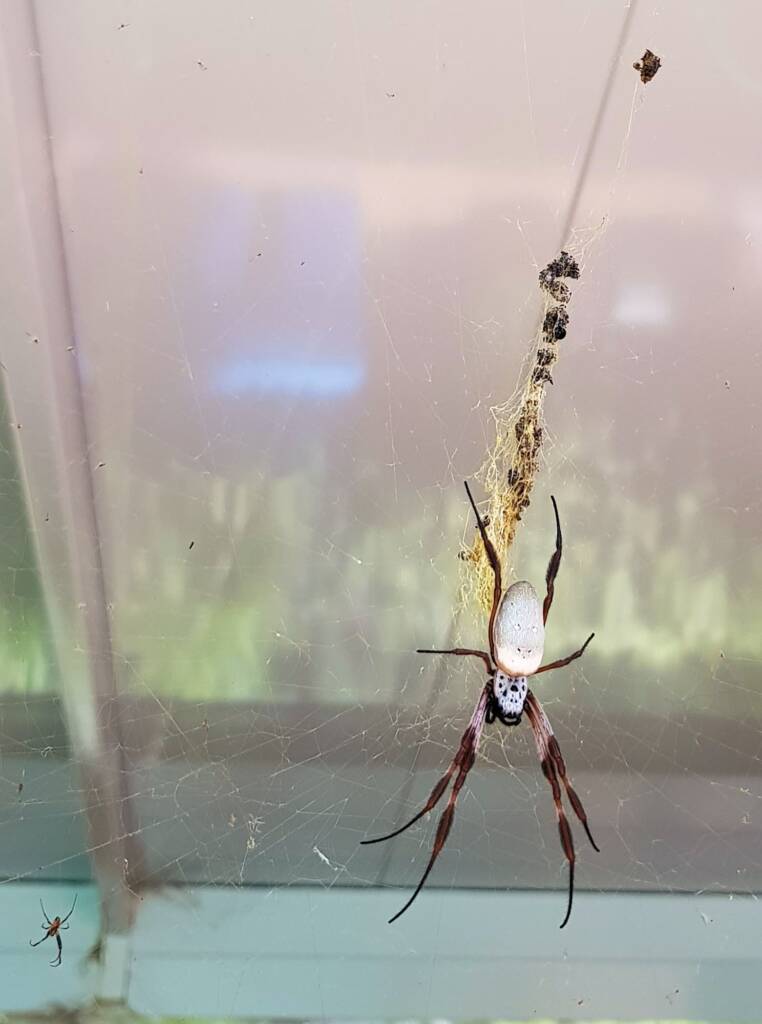
Footnote & References
- Many thanks to Daniel Heald, Dane Jensen, Jessica Herder for help with help with identifying the limb as a lizard / gecko tail, member of BeeEntomology Australia “Invertebratology”, Facebook group, https://www.facebook.com/groups/507004496955277/
- How do lizards drop their tails?, 11 May 2017, by Dr Mark Hutchinson, senior researcher, South Australian Museum, Australian Geographic, https://www.australiangeographic.com.au/topics/science-environment/2017/05/how-do-lizards-drop-their-tails/
- Turner, Grant. (2018). PREDATION OF AN ASIAN HOUSE GECKO HEMIDACTYLUS FRENATUS BY A ST ANDREW’S CROSS SPIDER ARGIOPE PICTA (ARANEIDAE). 56. 18-23. An instance of a female St Andrew’s Cross Spider Argiope picta consuming a juvenile Asian House Gecko Hemidactylus frenatus is described. https://www.researchgate.net/figure/A-St-Andrews-Cross-Spider-Argiope-picta-consuming-a-juvenile-Asian-House-Gecko_fig1_326649114
Golden Orb Weaver PreyBee Butterfly Dragonfly Fly Gecko Lizard Tail Shield Bug
Australian Golden Orb WeaverFemale Male Dimorphic Males Juvenile to Mature Female Moult Prey Golden Orb and the Bee Golden Orb and the Butterfly Golden Orb and the Dragonfly Golden Orb and the Fly Golden Orb and the Gecko Golden Orb and the Lizard Tail Golden Orb and the Shield Bug Web of Sex Whilst She is Distracted Whilst She is Distracted Again Egg Sac Web
SpidersIndex of Spider Images Spiders in Australia Araneidae — Orb Weavers Arkys Australian Huntsman Spider Barking Spider Black House Spider Carepalxis sp Celaenia sp Crab Spiders Deinopidae — Net-casting Spiders Dolomedes sp Dolophones sp Flower Spiders Hackled Orbweavers (Uloboridae) Jewel Spider Jumping Spider Long Jawed Spider (Tetragnatha sp) Lynx Spider (Oxyopes) Mangrovia albida Maratus volans Missulena occatoria (Red-headed Mouse Spider) Miturgidae Nicodamidae (Red and Black Spider) Ogre-faced Net-casting Spider Poltys sp (Twig Spider) Redback Spider Scorpion-tailed Spider (Arachnura higginsi) Thomisidae Tiger Spider (Trichonephila plumipes) White-spotted Swift Spider (Nyssus albopunctatus) Wolf Spider
